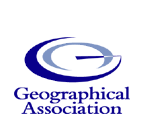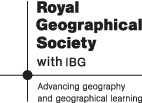After ignoring a letter to Tessa Jowell from over 100 leading Geographers representing nearly 50 different UK universities the media has picked up a Geography story. Of course a warning of social, economic and environmental risks to society is not important enough... but a survey by the National Geographic is.
Let's pause and reflect on the National Geographic and specifically the National Geographic Channel in the UK. Today the line up of programmes is The Secret World of Smell, Battle of Midway, Asian Tsunami, The World's most Powerful Dam, The Kursk, Alien Worlds: Blue Moon, Spider Power, Supervolcanoes Investigated, Kid in the Cockpit, Battle of Okinawa, Fall of Berlin, Kalahari Supercats, Channel Tunnel, Wounded Bird Ad, Hijacked Ad... OK, so maybe you could tease some Geography out of this but honestly National Geographic (Channel UK), are you doing your bit?
The national media love it. A quick search for items from over the past 48 hours brings up:
BBC News British pupils 'cannot locate UK'
BBC America: Geography: The lost world
BBC Jeremy Vine Show (discussion): Is Geography too green?
(see Tony Cassidy and Daniel Raven-Ellison reflect on the show here.
The Independent: What on Earth happened to Geography?
The Telegraph: For one child in five, Britain is an undiscovered country
The Sun: Just where are EU on map?
What I want to know is if the people who write these items think that teachers should spend more lesson time drilling place names and locations into pupils or helping them to understand located issues on poverty, trade, flooding, crime.... students will learn more through understanding the tools and concepts of the subject than reacalling what they can look up in an Atlas. It is important that students learn where places are so that they can make sense of the world and their place in it, but that's not all Geographers do.
If the public and media are so concerned about spatial literacy pehaps they should Give Geography its Place and start geo-tagging and mapping news stories and create Geography sections for websites that link to content and issues to named places.
Far too much of KS3 Geography is taught by non-specialists, as OFSTED identified in 2005. Specialists understandably end up teaching exam groups but in many schools this often gives students a poor experience of Geography. While the Government funded Geography Action Plan and run by the Geographical Association and RGS-IBG is working to improve Geography (launched on Monday but with no press attention despite being the same day as the National Geographic survey). This weakness at KS3 is a very real problem and must go some way to explaining the National Geographic results.
That aside, if Geography is to recruit more students and more of them are to go into Geography teaching it is vital that the media stop leaving Geography out except for the occasional bashing. Learners need to aspire towards tangible goals and role models and be offered meaning to their work so that they can develop direction, drive and enthusiasm. Many teachers offer and facilitate this, but with no clear programmes, or websites and few presenters Geography is left at a disadvantage compared to other fields.
Come on... you know you want to Give Geography its Place!
Oh... and Palau is here.
24 October 2006
Subscribe to:
Post Comments (Atom)





1 comment:
Completely agree! Here's my response on You Tube!
http://www.youtube.com/watch?v=IYz-ateNoRY
Post a Comment